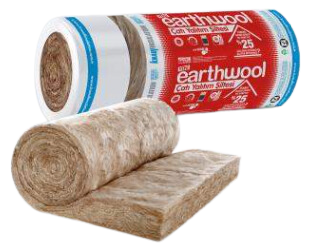
What is Mineral Wool?
Mineral wool, also known as rock wool or stone wool, is an insulating material made from natural rocks, such as basalt or diabase, that are heated to high temperatures and then spun into fibers. This highly versatile material is widely used in construction, insulation, and industrial applications due to its excellent thermal and acoustic properties, as well as its fire-resistant capabilities.
Let’s dive into what mineral wool is, its composition, applications, and why it’s such a popular choice for insulation.
1. Composition of Mineral Wool
Mineral wool is produced by melting rocks at temperatures around 1,600°C (2,912°F) and then spinning the molten rock into fibers. These fibers are then collected to create a dense, fibrous insulation material. The composition typically includes:
- Natural Rocks: Mineral wool is made primarily from basalt, diabase, and other naturally occurring rocks.
- Recycled Materials: Many mineral wool products contain recycled materials, such as slag from steel production, which enhances sustainability.
- Binding Agents: In some cases, a small amount of binder or resin is used to hold the fibers together, though the majority of the product is made from natural materials.
2. Properties of Mineral Wool
Mineral wool is known for its exceptional properties that make it ideal for a variety of applications:
- Thermal Insulation: Mineral wool provides excellent thermal resistance, making it ideal for preventing heat loss in buildings and industrial settings. It can withstand high temperatures and is often used in environments with extreme heat.
- Acoustic Insulation: The dense, fibrous nature of mineral wool helps absorb sound, making it a highly effective material for reducing noise in commercial, industrial, and residential buildings.
- Fire Resistance: Mineral wool is naturally fire-resistant, capable of withstanding temperatures up to 1,000°C (1,832°F) without melting. This makes it an excellent choice for fireproofing applications.
- Moisture Resistance: It does not absorb water, and its structure prevents the growth of mold, mildew, or other pathogens, contributing to a healthier indoor environment.
- Durability: Mineral wool is a long-lasting, robust material that does not degrade over time, ensuring its effectiveness as an insulation material.
3. Types of Mineral Wool
Mineral wool can be found in several forms, depending on its intended application:
- Blankets and Rolls: Mineral wool is commonly available in rolls or batts, which are easy to install between studs, joists, or other framing members in walls, ceilings, and floors.
- Loose-Fill: For applications like cavity walls or attics, loose-fill mineral wool can be blown in to provide complete coverage and minimize gaps.
- Boards: Rigid mineral wool boards are used in situations that require high-performance insulation, such as in industrial or external cladding applications.
- Slab Insulation: Mineral wool slabs are often used for industrial purposes, including the insulation of pipes, ducts, and boilers.
4. Applications of Mineral Wool
Mineral wool has a wide range of applications, especially in construction and industrial settings:
- Building Insulation: It is commonly used in residential and commercial buildings to insulate walls, roofs, and floors, helping to improve energy efficiency and reduce heating and cooling costs.
- Soundproofing: Due to its excellent acoustic properties, mineral wool is widely used in soundproofing applications, such as in music studios, theaters, offices, and apartments.
- Fireproofing: Mineral wool is a critical component of passive fire protection in buildings, as it helps to delay the spread of fire. It is often used in fire-resistant walls, ceilings, and floors, as well as around steel beams and structural elements to maintain their fire integrity.
- Industrial Insulation: In industrial settings, mineral wool is used to insulate pipes, tanks, boilers, and other high-temperature systems, providing both thermal and fire resistance.
- HVAC Systems: Mineral wool is used to insulate ducts and air conditioning systems, helping to maintain temperature control and reduce noise in ventilation systems.
5. Advantages of Using Mineral Wool
The popularity of mineral wool in various industries can be attributed to the many benefits it offers:
- Energy Efficiency: Mineral wool helps maintain consistent temperatures within buildings, reducing the need for excessive heating or cooling and contributing to lower energy bills.
- Sound Control: Its ability to absorb sound makes it ideal for creating quieter living and working spaces, making it a go-to option for soundproofing applications.
- Safety: The fire-resistant properties of mineral wool provide an extra layer of safety, particularly in buildings, industrial facilities, and high-risk areas where fire protection is critical.
- Sustainability: Mineral wool is often made with a significant percentage of recycled content and is fully recyclable itself, making it a more sustainable choice compared to some other insulation materials.
- Low Maintenance: Mineral wool is durable, resistant to moisture, and does not require much maintenance after installation, making it a long-term solution for insulation.
6. Disadvantages of Mineral Wool
While mineral wool offers a range of benefits, there are some considerations to keep in mind:
- Cost: Mineral wool can be more expensive than some other insulation materials, like fiberglass or foam. However, its long-term energy savings and durability often outweigh the initial investment.
- Handling: Mineral wool can be irritating to the skin and eyes during installation, so proper safety precautions, such as gloves and goggles, should be taken when handling the material.
- Weight: Mineral wool is heavier than some alternative insulation materials, which may require additional support or consideration during installation.
7. Conclusion
Mineral wool is a highly versatile and effective insulation material, known for its excellent thermal, acoustic, and fire-resistant properties. Whether used in residential, commercial, or industrial applications, it offers long-term performance and energy savings while improving comfort and safety. Despite its higher upfront cost and handling considerations, the benefits of mineral wool make it a top choice for many insulation and fireproofing needs.
If you’re looking for an insulation solution that combines sustainability, energy efficiency, and safety, mineral wool is an excellent choice to consider for your next construction or renovation project.